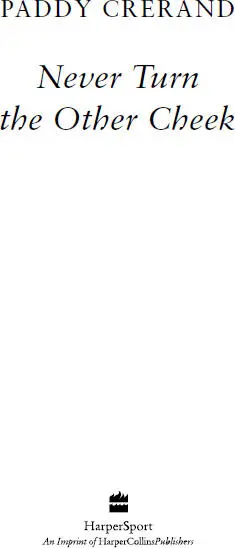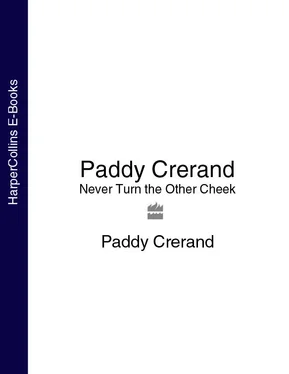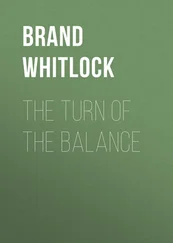
Dedication Dedication Introduction 1. Heart of the Gorbals 2. A Grand Old Team to Play For? 3. End of a Dream 4. South of the Border 5. The Making of Champions 6. Best Team in England 7. Champions of Europe 8. Cheated 9. Decline and Despair 10. Troubled Times 11. A Brave New World? 12. Red Eyed The Crerand Career Index Acknowledgements Picture Section Copyright About the Publisher
For my mother, Sarah,who made me the person that I am
Contents
Cover
Title Page
Dedication Dedication Dedication Introduction 1. Heart of the Gorbals 2. A Grand Old Team to Play For? 3. End of a Dream 4. South of the Border 5. The Making of Champions 6. Best Team in England 7. Champions of Europe 8. Cheated 9. Decline and Despair 10. Troubled Times 11. A Brave New World? 12. Red Eyed The Crerand Career Index Acknowledgements Picture Section Copyright About the Publisher For my mother, Sarah,who made me the person that I am
Introduction
1. Heart of the Gorbals
2. A Grand Old Team to Play For?
3. End of a Dream
4. South of the Border
5. The Making of Champions
6. Best Team in England
7. Champions of Europe
8. Cheated
9. Decline and Despair
10. Troubled Times
11. A Brave New World?
12. Red Eyed
The Crerand Career
Index
Acknowledgements
Picture Section
Copyright
About the Publisher
Introduction
Many people have approached me over the years to write an autobiography, but it wasn’t for me until now. I don’t feel comfortable talking about myself and never have. If you talked about yourself where I was from then you were seen as being big-headed. But I’ve had a good chat with my family and they’ve encouraged me to tell my life story. I’ve waited until I am 68 years old – so I have plenty to say. I played football for Celtic and Manchester United, the two greatest clubs in Britain – some might say, the world – and football has remained my life since I hung up my boots in 1972.
My vices are red wine and bad language. I’ve toned down the swearing for this book; those reading it will probably be able to see where. I speak as I find and there are many things which made me angry, and still do. My opinions can be as strong as my language.
Some people think of me as being rabidly pro-Manchester United. I am. And I’m proud of it. Proud to stand up for the club when so many people want to put us down. Manchester United has been a huge part of my life and Manchester has been my home for over four decades. I believe in standing up against injustice and always have.
I defended Eric Cantona after his infamous so-called ‘kungfu’ kick in 1995 and got slaughtered for it in the media. That didn’t bother me one bit as most of the people offering opinions knew nothing about football or United. And if I had been in Eric’s boots when that idiot came at him from the stands, I would have done exactly the same; except I would have hit him hard enough to make sure that he didn’t get back up. If someone attacks you then you have every right to defend yourself – you hit them hard and make sure it’s a good one.
A BBC presenter from Northern Ireland had a real go at me for sticking up for Eric. A radio station called me for my opinion, and the presenter went on about how she was a United fan who had watched the incident on television with her two sons. She said it was the worst thing she had seen in her life, how it was a totally deplorable act. I wasn’t having that.
‘You work in the media in Belfast,’ I said. ‘And you’re telling me that even with all the troubles that have affected your part of the world, that Eric Cantona kicking a complete idiot who deserved it is the worst thing you’ve ever seen? Who are you kiddin’?’
I wasn’t naïve about Irish politics when I made that statement, as you’ll see. At times I was more than an observer of The Troubles.
Standing up for what I believed in often got me into trouble as a player. I’d not been at Celtic long when we played a five-a-side tournament in Falkirk, then the most anti-Catholic, anti-Celtic town in Scotland. You were not allowed to pass the ball back in your own half in five-a-side, but this referee let a Falkirk player get away with it so I swore at him. He sent me off. Three Falkirk players came charging towards me and a fight followed which saw my mate Mick Jackson and me dismissed, leaving Celtic with two outfield players. I was fined, not just for being sent off, but for attacking a journalist who tried to speak to me about the incident after.
It wasn’t the only time I was sent off in a career that spanned nearly 500 games for Manchester United and 120 for Celtic, and it wasn’t the only time that I was involved in an argument with a journalist, but we’ll come to that.
My life’s philosophy was determined by my upbringing in Glasgow’s Gorbals. I was a child of Irish Catholic immigrants and we led an impoverished, underprivileged existence – not that I knew it at the time. I became interested in politics at an early age and joined the Labour Party as soon as I could. There was a rumour that someone in the Gorbals voted for the Tories in the 1970s, but I don’t believe it.
Principles formed in Glasgow still govern my life. I was taught to face problems head on, never to go down in a fight and never to turn the other cheek. I’ve made mistakes and I’ve got things right, but my life has seldom been dull. After reading what follows, I hope you’ll agree with me.
Paddy CrerandManchester 2007
ONE
Heart of the Gorbals
My dad felt uneasy about going to work on the night of 12 March 1941. He wanted to be with my mum, who was about to give birth to their fourth child. He was also nervous because German bombs were being dropped around the shipbuilding yards on Glasgow’s River Clyde with increasing frequency, but my mother reassured him that he would be fine and off he went.
Dad Michael worked for John Brown’s Shipyard in Clydebank, one of the most famous shipbuilding yards in the world. In later years, the Queen Mary and the QE2 liners were constructed there with the ‘Clyde-built’ seal of quality. Before the war, John Brown’s built many notable warships and liners like the Lusitania and HMS Hood .
Eighteen months into the Second World War, the focus of the yard was HMS Vanguard , which was to be the biggest-ever British battleship. Dad was not a skilled ship worker but a recently arrived Irish immigrant who had ambitions of opening a grocery shop in Glasgow. He was on fire-watch when the German bombers flew along the Clyde and made several direct hits on the shipyard.
Dad was killed instantly by a Luftwaffe bomb. Several other people lost their lives that night, most of them Irish immigrants who had come to Scotland to make a living. Michael Crerand’s name is etched into an obelisk that stands in Clydebank. I’d like to see it one day.
The day after my father’s death, my sister Mary was born. Can you begin to imagine what my mother, Sarah, went through in those twenty-four hours? She never did speak about it. Mum became a widow with responsibility for four children, all of them under the age of four. My brother John was three and a half; I was two; and my sister Bridie was just a year old when my father was killed.
My parents were originally from County Donegal, in Ireland’s beautiful north west. At 19, mum left the small town of Gweedore to work as a maid at the Baird Arms Hotel in Newtonstewart, County Tyrone, following in the path of some of her eleven sisters. Mum worked for next to nothing, but that she didn’t have to pay for food and accommodation meant she was in a better position than many of her friends. The hotel owner was originally from Kilmacrennan, County Donegal, and she had two sons, one of whom, Michael, became my father. Dad worked in the hotel, too, and that’s where he met my mum.
Читать дальше













